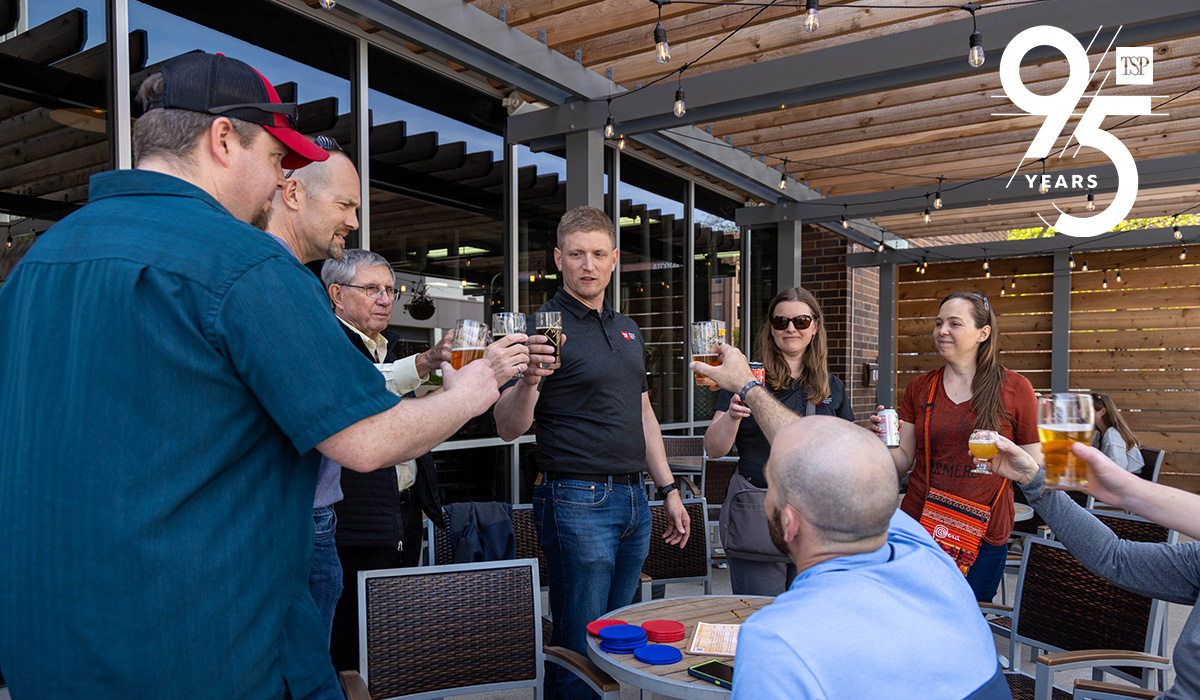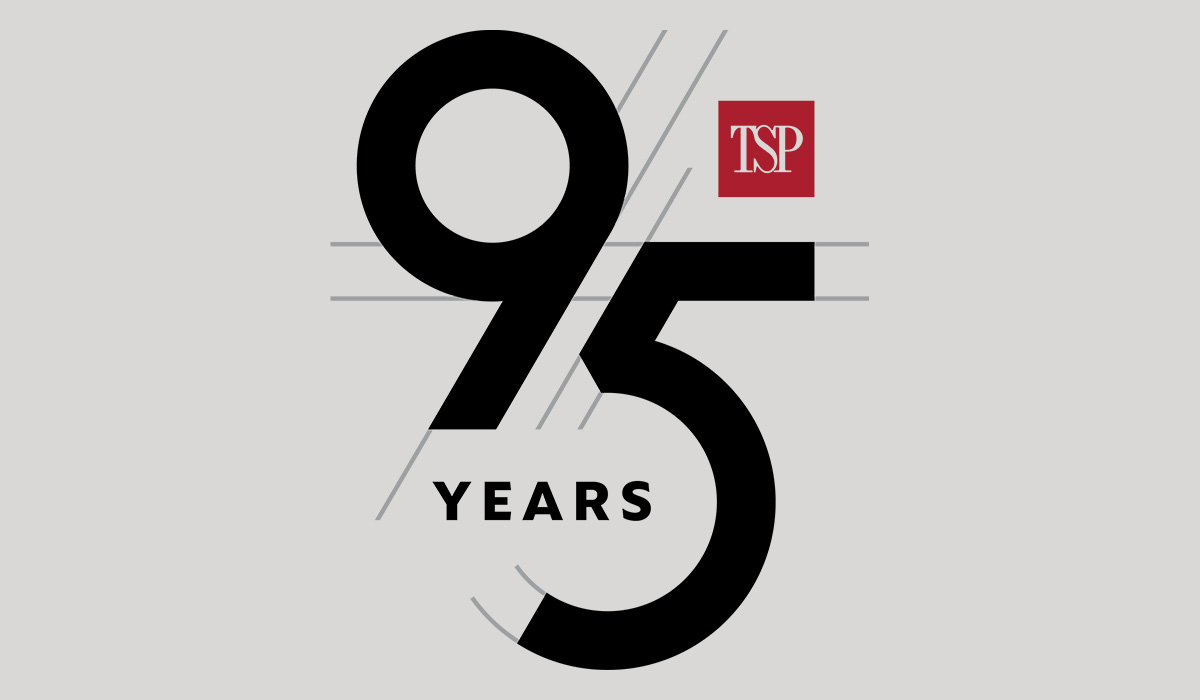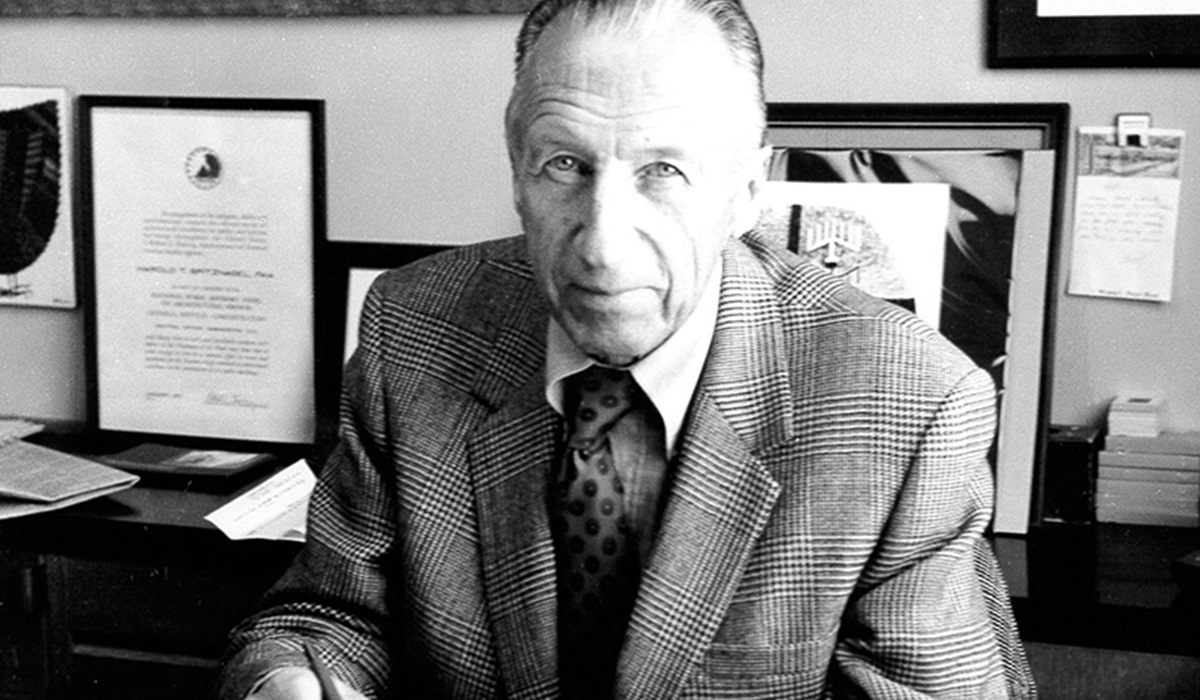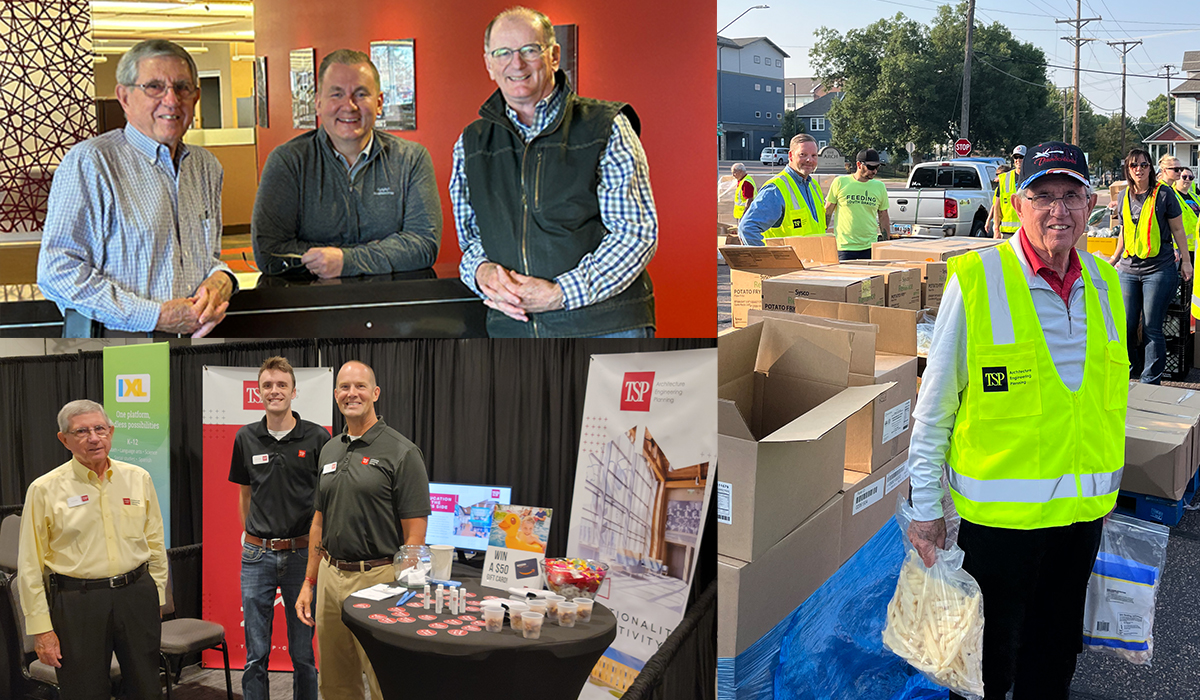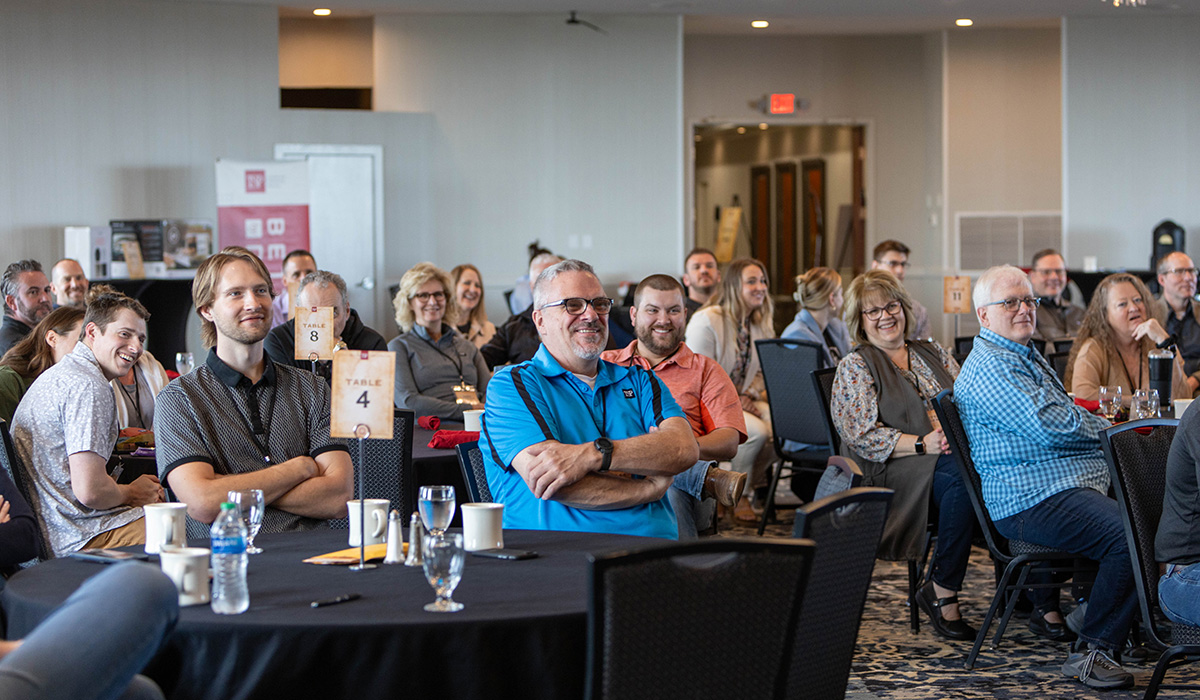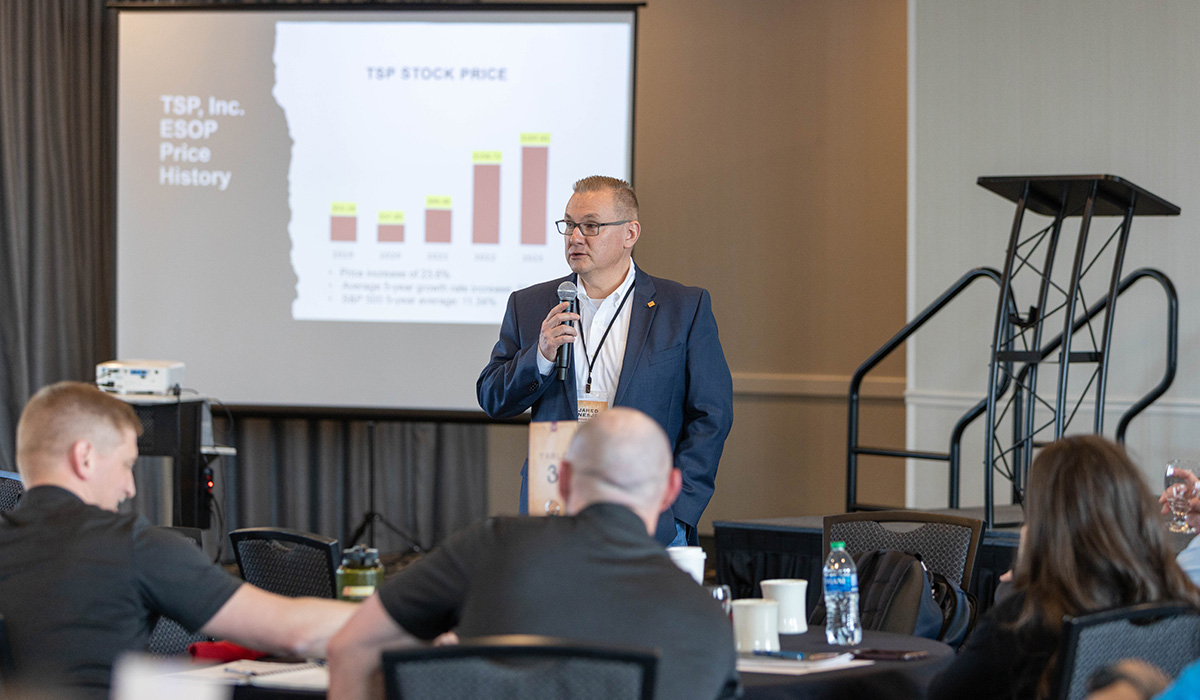Amid the significance of a new year, 2025 holds added meaning for TSP, Inc. as the company celebrates its 95th anniversary.
This milestone is met with deep gratitude for the team members, clients, partners, and friends who have been part of the 95-year journey.
While honoring the firm’s rich legacy, there is a focus on the future – and the innovations and impactful solutions yet to come.
Established in Sioux Falls, TSP began as a one-man shop in June 1930 and has grown into a regional leader in architecture, engineering, planning, and interior design services.
With a strong skill set, company founder Harold T. Spitznagel was dedicated to understanding his clients and their needs.
Spitznagel quickly gained a reputation for delivering innovative, efficient and flexible solutions with high-quality design, all while staying within budget.
As Wallace Steele, the firm’s president from 1978 to 1983, described, Spitznagel had an amazing talent for becoming his clients’ respected friend as well as their architect.
Since those early days, TSP — The Spitznagel Partners — has approached each project with the same mindset, understanding that the best designs are created with, and for, those they aim to serve.
This client-focused approach, combined with deep industry expertise, stable leadership, business continuity, and the ability to adapt to changing circumstances have fueled TSP’s growth over 95 years.
In 2019, TSP became an employee stock ownership program, or ESOP, company, which allows employees to become owners without the need for an up-front personal investment.
Company shares are held in an employee stock ownership trust until the employee retires or leaves the organization. An ESOP is a tax-advantaged retirement plan, and the asset is the stock of the company where the employee works.
TSP became a 100 percent ESOP in the fall of 2022.
Along with celebrating TSP’s 95-year milestone, a significant individual achievement is the anniversary of the longest-tenured employee in the firm’s history.
The average length of tenure among employees is an impressive 13 years, with a combined total of 795 years of experience among all team members.
Among that group, Ron Mielke stands out as the leader with an extraordinary 56 years of service.
Mielke started at TSP on Jan. 30, 1969, after earning a master’s degree in business administration from the University of South Dakota. Four years earlier, he received a bachelor’s degree in mechanical engineering at South Dakota State University.
In between his studies, he served in the Army from May 1965 to September 1967.
Over his years at TSP, Mielke has held roles ranging from mechanical engineer, project manager, department head, principal, CEO, construction services leader, and board president.
Mielke offers the unique perspective of being the firm’s only current employee who personally knew Spitznagel, the company founder.
Although “Spitz” had largely stepped away from day-to-day operations when Mielke joined the firm, he still gained valuable insights from Spitznagel and his partners.
One key lesson was the importance of building relationships.
“Not just necessarily the people who were past and present clients, obviously that was always a priority, and how you continue to build and maintain that relationship after you’ve done a project,” Mielke said.
“But it was also the value of being involved in the community, getting to know people and building relationships to increase the chance of being considered for a project — whether it was a school, or an office building, or a church, or anything else.”
Mielke credits Spitznagel for other enduring company values such as hiring people who align with organizational culture, a core value to “design it like we own it,” and the well-known TSP motto “If we mess up, we fess up.”
An organization can have the best technology and the nicest-looking facilities, Mielke said, but success ultimately is determined by its people.
“If you don’t have the people who really get the work done, whether that’s doing the design work and coordinating all of the disciplines, if you don’t have the people who can go out and cultivate relationships, and if you don’t take care of the clients as you’re working for them, they won’t come back, and they’ll go to somebody else.”
Mielke is optimistic about TSP’s future, in part because of its ESOP status, which differs from the ownership structure during his time as CEO.
Back then, identifying potential owners and their need to secure the resources to become an owner could be challenging.
“I think the ESOP is a really great way to not only make everybody in the firm an owner from a financial perspective, but hopefully, the culture will continue to grow in that it does not matter if you’re the next person hired or you have been here 30 years, you realize that ‘what I do every hour I am here at work either contributes to or doesn’t contribute to the financial value of the firm.’”
After joining TSP in 1997, Jared Nesje quickly realized that the firm’s legacy, driven by qualities such as reputation, professionalism, honesty, integrity, and doing the right thing, serves as the foundation for its future success.
“When I joined TSP as an architect just getting my start, I felt like I truly belonged here and was eager to do my part in making today better than yesterday,” he said.
Nesje, who now serves as the fifth CEO and board president in company history and is the first architect in the role since Spitznagel, remains committed to the firm’s founding values, striving to support our thriving communities and strong relationships.
“Our firm is built on forward-thinking and backed by stability and a strong framework – the established policies, procedures, and legacy traditions that 95 years brings,” he said.
“That motivates us every day and fuels us to be more creative and more curious when looking to the future.”
That future includes a goal for 2025 and beyond to enhance the firm’s commitment to the growth and development of employees so they can reach their full potential, contribute meaningfully, and thrive in their roles.
In 2024, the retention rate for TSP employees was 95 percent, and the firm is committed to keeping those numbers at similar or even higher levels.
“We know that our success as a firm is deeply connected to the success of our people, and by focusing on all levels of our team, we will achieve even greater success as an organization,” Nesje said.
“Whether it’s training programs, mentorship, or other new initiatives, our dedication to growth among team members is central to everything we do and will prepare us to approach new opportunities with innovation and confidence,” he said.
